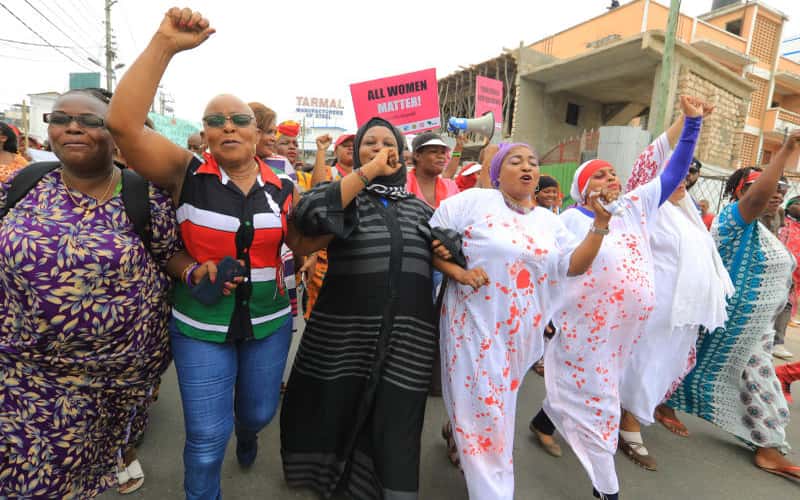×
The Standard e-Paper
Smart Minds Choose Us

Maureen writhes in pain as she cradles her baby in Kaptembwo, an informal settlement in Nakuru County.
As the world marks 16 days of activism against gender-based violence (GBV) which started yesterday, Maureen is nursing injuries she sustained in a domestic row.